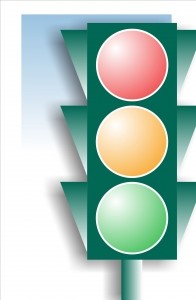Running a red light is one of the most dangerous things a motorist can do. Many people who run red lights cause T-Bone accidents or side impact collisions. The red light runner enters an intersection in violation of the law and either strikes another vehicle in the side or is hit by a car coming from a cross street. 
An experienced T-Bone accident lawyer knows these types of side impact crashes are often deadly or cause serious injury because the side of a car has virtually no ability to protect occupants from the force of the crash or intrusion of the striking vehicle.
Although running a red light is unquestionably dangerous, it is also a common cause of car and truck accidents occurring at intersections. Drivers need to be aware of the risks of intersection accidents and take steps to try to prevent a collision as they approach an intersection.
T-Bone Accident Risks at Intersections
Red-light runners play a big role in causing the 1.9 million car accidents occurring at intersections throughout the United States each year. Safe Roads reports 63 percent of Americans responding to a survey said they saw people run red lights several times each week. In many cases, survey respondents reported seeing people go through red lights at least once per day.
Approximately 1/3 of Americans know someone who has been in a car accident with a person who ran a red light. Drivers who do this can be sued and their insurance becomes responsible for paying damages.
Motorists approaching an intersection need to be aware of the chances someone will run a red light. Never assume you can go through the intersection, even in situations when you clearly have the right-of-way. Approach the intersection at a speed reasonable for conditions and be prepared to stop if necessary so you can avoid a crash with someone in your path. Be sure to wait before entering an intersection if an obstacle is obstructing cross traffic, so you can ensure the road is clear and no one has entered in violation of a red light or a stop sign.
If everyone followed best practices at intersections, including not running red lights, many of the serious or deadly crashes throughout the United States could be prevented. Approximately 20 percent of all fatal collisions happen at intersections in the U.S. and in some urban areas, intersection accidents account for 50 percent of crashes.
Intersections have 32 possible points of conflict, and red light runners are not the only reason accidents happen at intersections. Replacing a standard four way intersection with a roundabout could significantly reduce crash risks.
When intersections are changed to roundabouts, there is a 90 percent reduction in collisions resulting in injuries considered incapacitating. There is also a 39 percent overall reduction in crashes at roundabouts compared to regular intersections, and a 76 percent decline in fatalities. There are fewer T-Bone accidents at roundabouts and more low-angle crashes, which helps to explain why the death rate is so much lower.
